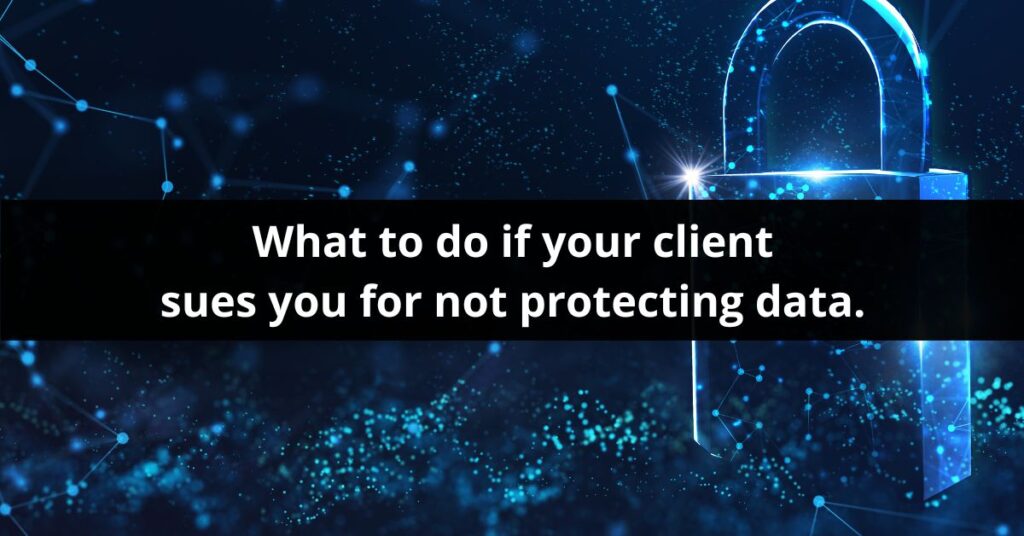This post has been fact checked by Lisa Rogers, principal attorney at ARK Attorneys.
Real estate agents get sued for not protecting client data more often than you’d think. This is because real estate agents have access to their client’s financial and personal data, and your clients are counting on you to safeguard it. Even with the best security practices and your best intentions, mistakes and hacks can happen, and information ends up in the wrong hands. If you are served with a lawsuit for not protecting your client’s data, consult with a lawyer who is familiar with the real estate industry like our friends at ARK Attorneys to understand the allegations and consequences of the lawsuit before you do anything else.
It’s important to be aware of the laws and regulations that apply to the real estate industry and to professionals that belong to associations like The National Association of Realtors (NAR) Code of Ethics, that requires agents to protect the confidentiality of client information, as well as state and federal data protection laws like the Real Estate Settlement Procedures Act (RESPA) and the Gramm-Leach-Bliley Act (GLBA). You may be required to notify the affected individuals, regulatory bodies, and authorities about it depending on the severity of the data breach.
Your next step is to do an internal investigation to find the cause of the data breach while identifying any areas where your data protection practices failed. This involves reviewing your security policies and procedures, and a forensic analysis of the affected systems.
Some questions to ask are:
- Is all of your software up to date?
- When was the last time you, your team and your clients changed your passwords?
- Did anyone click on an attachment or link from an unknown sender?
- Was your client’s data left out in the open?
- Is your firewall active?
Now you can create a defense strategy. You’ll show that you did take reasonable steps to protect your client’s data, or that the data breach was the result of an unforeseeable event beyond your control.
To prevent similar incidents from occurring again, you’ll also need to implement stronger security measures. This includes conducting regular security audits, encrypting sensitive data, doing regular backups, and offering mandatory employee training on data security best practices. It’s also important to have an incident response plan in place to minimize any damage.
With the right preventive measures in place, you can stay out of the courtroom and save yourself time and money. If you’re facing a data breach lawsuit from a real estate client, you’re not alone. Click here to contact our friends at ARK Attorneys and learn more about your options.

